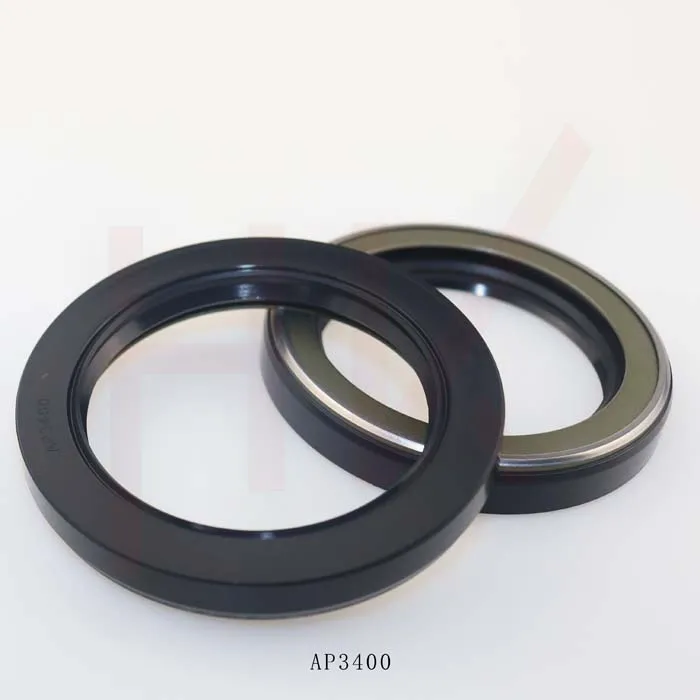Jul . 27, 2024 15:18 Back to list
Choosing the Right Materials for Hydraulic Oil Seals in Industrial Applications and Maintenance
The Importance of Hydraulic Oil Seal Materials
Hydraulic systems are critical components in various industries, including manufacturing, transportation, and construction. They rely heavily on hydraulic oil seals to ensure the efficient and reliable operation of hydraulic machinery. The choice of material for these seals is paramount, as it impacts the system's overall performance, durability, and maintenance requirements.
Understanding Hydraulic Oil Seals
Hydraulic oil seals serve as barriers that prevent the leakage of hydraulic fluids and contaminants from entering the system. They are situated in various positions within hydraulic cylinders, pumps, and reservoirs. Given the high pressures and varying temperatures encountered in hydraulic systems, the materials used for sealing must be robust, resilient, and adaptable to different operating conditions.
Key Properties of Seal Materials
When selecting materials for hydraulic oil seals, several properties are critical
1. Chemical Compatibility The chosen material must be compatible with the hydraulic fluid being used. Many hydraulic oils contain additives that could degrade certain seal materials. For instance, nitrile rubber (NBR) is widely used but may not perform well with phosphate esters.
2. Temperature Resistance Hydraulic systems often operate under elevated temperatures. The sealing material must maintain its integrity and elasticity over a wide temperature range. Materials like fluorocarbon (FKM) are known for their excellent high-temperature performance.
3. Mechanical Strength The material must withstand mechanical stresses and pressures without deformation or failure. Polyurethane (PU) is often preferred for its excellent abrasion resistance and load-bearing capabilities.
hydraulic oil seal material

4. Low Compression Set This refers to the material's ability to return to its original shape after being compressed. A low compression set ensures that the seal maintains its sealing ability over time, prolonging the lifespan of hydraulic components.
Common Seal Materials
Several materials are commonly used in the manufacture of hydraulic oil seals
1. Nitrile Rubber (NBR) This is one of the most commonly used materials for hydraulic seals. It offers good resistance to oils and fuels, making it suitable for various applications. However, its temperature tolerance is limited, typically around -30°C to 100°C.
2. Fluorocarbon (FKM) Known for its high temperature and chemical resistance, FKM is ideal for extreme conditions. It can handle temperatures up to 200°C and is compatible with a wide range of fluids.
3. Polyurethane (PU) This material is favored for its outstanding wear resistance and flexibility. PU seals can endure higher pressures and are often used in dynamic sealing applications.
4. Silicone Rubber While silicone is not as widely used for hydraulic seals due to its lower mechanical strength, it offers exceptional temperature resistance and flexibility. It is often employed in applications where extreme temperatures are encountered.
Conclusion
The selection of hydraulic oil seal materials is a critical element in ensuring the reliability and longevity of hydraulic systems. Each material has its unique advantages and limitations, and the choice often hinges on specific operational conditions, including the type of hydraulic fluid, temperature ranges, and mechanical loads. Understanding these factors is essential for engineers and maintenance professionals seeking to optimize the performance of hydraulic machinery. By selecting the appropriate sealing materials, industries can reduce maintenance costs, enhance efficiency, and ensure smoother operations in their hydraulic systems.
-
TCN Oil Seal Metal Ring Reinforcement for Heavy Machinery
NewsJul.25,2025
-
Rotary Lip Seal Spring-Loaded Design for High-Speed Applications
NewsJul.25,2025
-
Hydraulic Cylinder Seals Polyurethane Material for High-Impact Jobs
NewsJul.25,2025
-
High Pressure Oil Seal Polyurethane Coating Wear Resistance
NewsJul.25,2025
-
Dust Proof Seal Double Lip Design for Construction Equipment
NewsJul.25,2025
-
Hub Seal Polyurethane Wear Resistance in Agricultural Vehicles
NewsJul.25,2025
-
The Trans-formative Journey of Wheel Hub Oil Seals
NewsJun.06,2025
Products categories
















